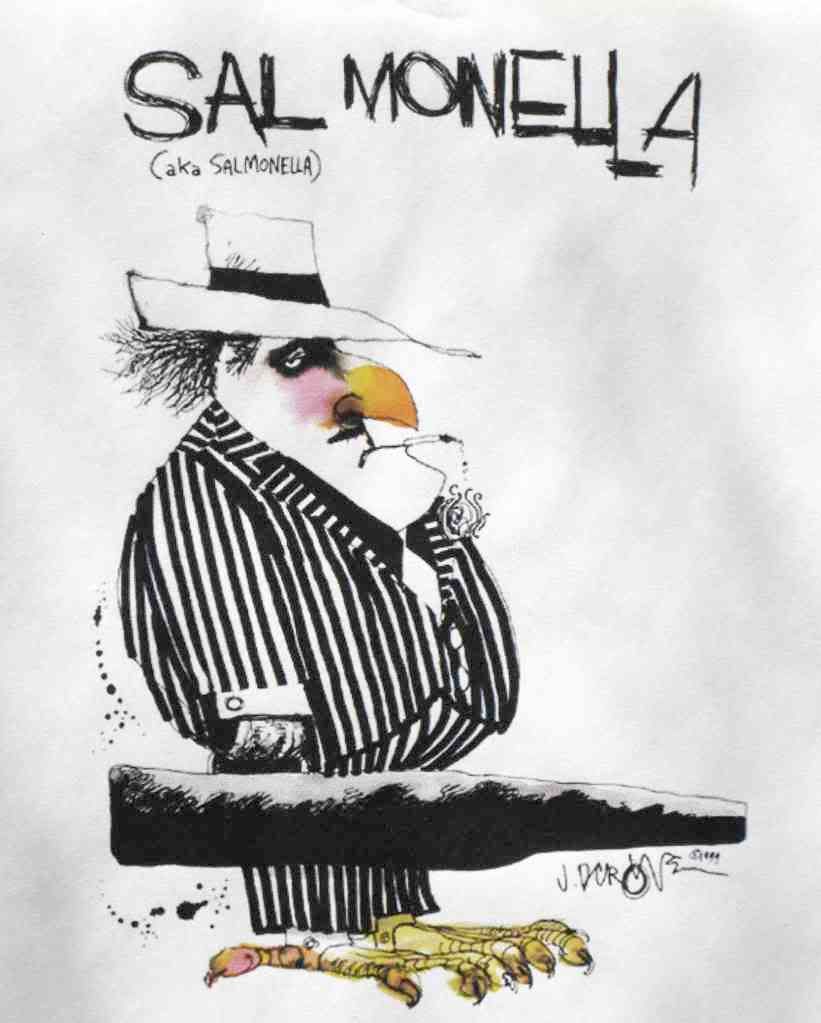 January 30, 2009
January 30, 2009
The Salmonella Typhimurium outbreak began officially on September 1, 2008, when the first victim began to feel ill. Three cases were recorded in September. But the outbreak got underway in earnest in October.
According to
CDC's Epidemic Curve, the number of cases began to increase during the first week of October, reaching a peak around Thanksgiving and into early December. As of January 28th, the most recent onset date for a victim's symptoms was January 16, 2009.
CDC received the first whisper of an outbreak on November 10th, when staff members received reports of 13 cases of
Salmonella Typhimurium infections in 12 states. All 13 cases were caused by the identical strain. Something definitely was in the wind. But what?
By November 25th, the number of cases had grown to 35, and CDC began an epidemiological assessment of the case reports. A second cluster of 41 cases was reported on December 2nd. The two cluster strains were a genetic match. CDC compared the genetic profile of the outbreak strains to other strains in its data bank, including Salmonella Typhimurium strains isolated from cases of human and animal illnesses, and those isolated from raw meat and poultry products in the United States.
The strain of Salmonella Typhimurium responsible for this new outbreak was unique. It had never before been reported in the United States. Not from people. Not from animals. Not from food samples.
The epidemiological detective work – carried on both by CDC and by state agencies – continued. The break in the case came from Minnesota's formidable Team Diarrhea, which keyed in on small clusters of cases in two long-term care institutions and one school. Team Diarrhea determined that the only food common to all three institutions was King Nut creamy peanut butter. By January 9th, Minnesota identified outbreak cases in six additional institutions. In all cases, King Nut creamy peanut butter was served to residents.
The Minnesota Department of Agriculture sampled peanut butter from an open jar of King Nut found at one of the institutions and, on
January 12th, announced that the state lab had recovered the outbreak strain of
Salmonella Typhimurium from the open jar.
While the Minnesota finding pointed strongly to King Nut peanut butter as a source of the outbreak – especially when combined with epidemiological data gathered by CDC and other state agencies – some significant loose ends still needed to be secured. King Nut distributed its peanut butter to a limited number of states; yet the outbreak
already had spread to 43 states.
King Nut, however, did not manufacture the peanut butter. It simply distributed peanut butter manufactured for it by Peanut Corporation of America. PCA sold peanut butter, peanut paste, and other peanut products to institutions, to distributors, to food service operations and to food processors across the United States. And the company exported some products to Canada and elsewhere.
Peanut Corporation of America issued a press release on
January 10th that acknowledged the outbreak, highlighted the company's cooperation with federal and state agencies in the outbreak investigation, and emphasized:
"To date, the only conclusive testing linking salmonella to PCA's product was done on an open container of the peanut butter in a large, institutional kitchen. The history of the handling of that open container is unknown at this time."
This statement was made obsolete less than one week later.
Georgia's Department of Agriculture announced on January 16th that it had discovered
Salmonella in a previously unopened jar of peanut butter collected from PCA's Blakely, GA processing plant. And Connecticut removed the last shred of lingering doubt on
January 20th, when the state's Department of Consumer Protection announced having recovered the outbreak strain of
Salmonella Typhimurium from an unopened 5-pound tub of King Nut peanut butter found in the warehouse of a West Haven distributor.
The evidence linking the outbreak to peanut butter from the Blakely plant was compelling, but it didn't account for nearly all of the reported cases. CDC initiated a further epidemiological study in mid-January. The results of that study pointed to Keebler® and Austin® brands of peanut butter sandwich crackers. The crackers contained peanut butter manufactured at PCA's Blakely facility.
PCA acted more slowly, recalling tranches of production, as additional information on the Blakely operation and history was uncovered by FDA. This piecemeal recall, doubtless, complicated the work of PCA's customers, who based their own recall decisions on PCA's announcements.
As of January 29th, CDC has received reports of 529 confirmed cases of salmonellosis caused by the outbreak strain of Salmonella Typhimurium. At least 116 people have been hospitalized. The outbreak may have contributed to the death of eight outbreak victims – all of them at least 59 years old. Five states have reported outbreak-associated deaths: Minnesota (3), Virginia (2), Idaho (1), North Carolina (1), and Ohio (1).
The agency believes that this outbreak is not yet over. It takes more than two weeks from the time an individual is infected until CDC has the genetic fingerprint of the Salmonella in its hands. This delay is due to the incubation period of the infection, the patient's delay in seeking treatment, and the time required to recover Salmonella from the patient's stool and perform the lab tests that confirm the genetic match.
Continued in Anatomy of a Peanut Butter Outbreak: The Aftermath
 January 31, 2009
January 31, 2009





